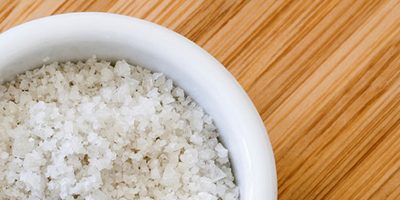
Translating research into action: Xuejun Yin
Xuejun Yin is a PhD candidate at The George Institute China, working in the Food Policy team. She has been involved in multiple research projects including the recent ground-breaking study on salt substitutes that shows how a simple salt swap can save millions of lives worldwide. She wants her research to empower people to make healthier eating choices – a prerequisite to create healthier societies.
Xuejun joined the Institute in 2012 after completing her master’s degree in public health. It didn’t take her long to discover her passion for research.
What drove you to research?
I think The George Institute played a major role in steering me towards a research career. When I joined, I got the chance to be part of some remarkable projects, such as the China Rural Health Initiative and Salt Substitute and Stroke Study. Apart from learning how to conduct high-quality research, I was inspired to see how this work impacts people’s lives. Working with people and being guided by supervisors who are passionate and committed to improving health equity and reducing the disease burden worldwide, has been rewarding.
Tell us about your current role and research focus at The George.
In 2019, I received UNSW Scientia PhD scholarship and currently I am a third-year PhD student at The George Institute for Global Health, UNSW. My research involves quantitative and qualitative methods with a strong focus on interventions to improve health outcomes at a population level. Engagement with multiple stakeholders from government and communities is an important aspect too.
Why food policy?
There are two ancient Chinese Proverbs. One is “病从口入” which means “Disease goes in by the mouth” and another is “药食同源” which translates to “Food as medicine.” A tremendously large number of deaths and disabilities are attributable to unhealthy diets. For example, too much salt intake is associated with high blood pressure, which is a major risk factor for hypertension and cardiovascular deaths.
Conversely, healthy diets can promote health and protect your body from disease, just as medicine does. Everyone eats food every day. Ensuring that what you eat improves your health, is one of the most cost-effective public health interventions to address the huge burden of non-communicable diseases. I am passionate about this area of study as it has the potential to impact population health and achieve equity by changing the food system.
Tell us about your work on salt reduction.
I was involved in recent The Salt Substitute and Stroke Study (SSaSS) trial, which for the first time, shows unequivocal evidence that salt substitution can protect against stroke, cardiovascular events and death. Published several months ago, it is one of the largest dietary intervention studies ever conducted and has received huge attention in media and policy circles world over.
As part of my PhD project, I worked out a global environmental scan to identify the availability, price, formula and labelling of salt substitutes round the world. I also did a qualitative study on facilitators and barriers in implementing salt substitute interventions at population levels.
What impact do you wish to have with salt research?
High-level salt intake is bad for our health. Most people eat more salt than they should and what the WHO recommends. A lot of studies indicate that health education alone isn’t enough to change salt intake behaviour. We need a feasible and sustainable way to make people cut down their salt, especially in those countries where salt is mostly added in cooking as opposed to being consumed in processed food.
Our recent research shows salt substitutes are a healthier alternative. Regular salt is 100% sodium chloride; salt substitutes replace some of this with potassium chloride. High sodium and low potassium consumption are both associated with higher blood pressure. Therefore, the salt substitutes present combined benefits that come from lowering sodium and increasing potassium intake – this helps control blood pressure and protect heart health.
I hope this evidence can trigger people’s interest in using salt substitutes and more importantly, steer larger policy changes towards salt reduction. I want to work with a range of stakeholders including manufacturers and industry in countries such as China, Vietnam, and India to promote salt substitutes. Our research must translate to action.
What does ‘thought leadership’ mean to you?
First, it means communicating my research and expertise to a larger audience. Secondly, it means having an impact with my work. I want to be able to use my knowledge and communication skills to influence stakeholders and policy makers to create an enabling environment for health promotion.
Where can we find you outside of work?
Probably at a badminton court! I play the game regularly. It helps me reduce stress and improve my flexibility. Badminton is a game of two or four members at least, so a great social activity that helps build good team spirit.






